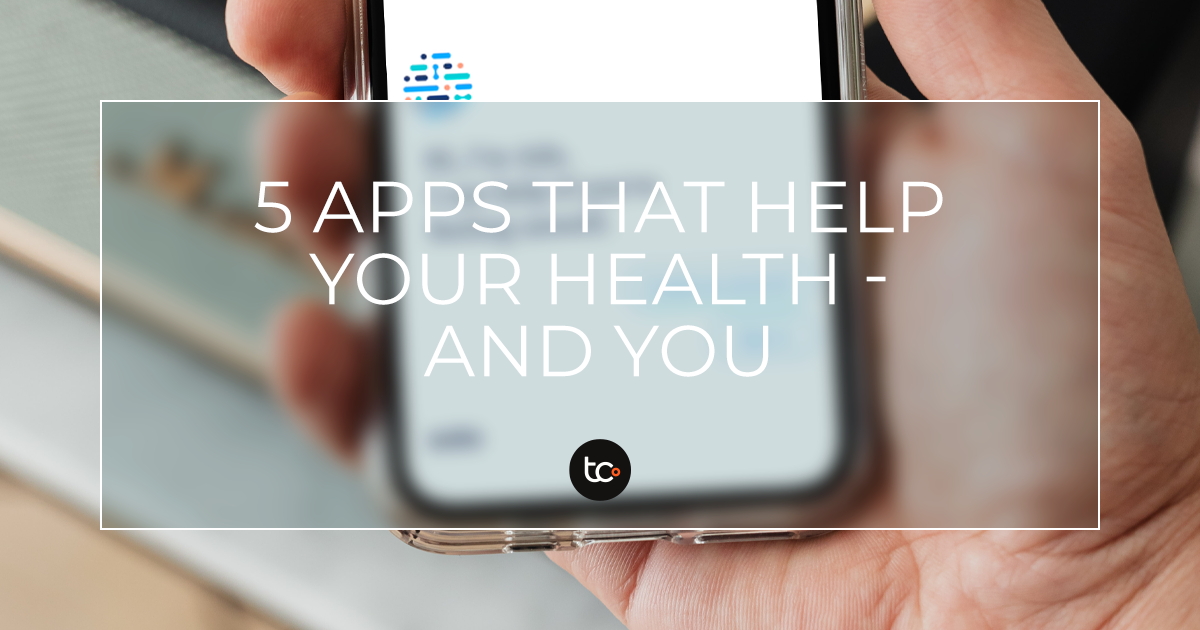Resources
5 Apps that Help Your Health – and You


One of the things that the pandemic really shed a light on is how much we rely on in-person visits to the doctor whenever we feel sick, and when those visits were forbidden because of the pandemic, a lot of people struggled. Something as benign as the flu or a hangover feels like a much bigger illness when the only thing you can do for it is drink Jamba Juice until you start to feel human again.
Since then, there’s been more than a few apps developed to make sure that the people who need to see a doctor can see a doctor – even if that doctor is AI.
Artificial intelligence gets a bad rap; from movies to modern life, a lot of what you see about AI is how bad it is to trust a machine to make human decisions. In most cases, that’s true – you can’t ask a machine to think the way a human does and give you a human response.
However, medical AI is one of those areas where the reality is this: you can absolutely trust AI to give you the right answer to whatever’s worrying you. Medicine, more than any other field, is based on logical conclusions. There are parameters that every illness or symptom fits into, and an AI can – and has been taught to – recognise these parameters.
An AI can help by collecting all the information about you in one place and making sure you have the best advice at hand until you get seen by a doctor. It’ll also make that information easier to access for other caregivers, no matter where you’ve been seen.
Here are five apps that really help you stay on track with your health. If you’re worried about anything you uncover through these apps, we recommend you follow up with your local doctor, just to be safe.
1. ADA
We all know the old internet saying, ‘don’t look up your symptoms on Google’. The internet has a habit of catastrophising: tap in ‘stuffy nose’, and suddenly WebMD is telling you you have three days to live.
ADA is the exception. Ada is a personalised symptom-assessment tool that encourages you to monitor your health. What it does is take in symptoms that you’re feeling, analyse them, and give you solutions. It also keeps up with you and monitors your symptoms over time so that you have an early alert for when you need to take it up a notch and go to the hospital.
It’s built entirely by scientists and doctors, and it’s one of the most medically-sound apps available on the market today, with over 12 million users using Ada for a prediagnoses.
2. Sense.ly
Built with empathy, Sensely is a virtual avatar and chatbot system that checks in on how you’re doing once or many times a day. All of its information is sourced through the Mayo Clinic and NHS, and its chronic condition monitoring and symptom tracker are both excellent uses of how technology can simplify a complicated, emotional industry. It can also help you with your health insurance, and keep you updated on tips and tricks to manage your health.
3. SkinVision
One of the biggest worries people have to contend with is skin cancer, and with summer on the way, those worries increase exponentially. SkinVision is a way of assessing any new moles or marks against criteria to see if you’re at risk for developing skin cancer. It’s built in tandem with skin health professionals and dermatologists, and offers ways to maintain healthy skin throughout the year – even when it’s hot and all you want to do is go down and veg at the beach.
4. Wysa
Isolation can bring forward a lot of problems, and you’ll have to deal with them on their own. Anxiety, depression, and mental health are some of the worst things to try and combat alone and with Wysa, you can ease your burden. Wysa is built around the concept of Cognitive Behavior Therapy, a clinically-proven method of reframing your thoughts in a way to combat destructive behavior and make you feel heard. It’s available 24/7, and it has a module where you can just vent to the chatbot and validate how you’re feeling and what steps to take to feel better, no matter how small those steps seem to you.
5. MDacne
Acne can really kill your confidence, and it can be symptomatic of other problems: hormonal imbalances, allergies, and other issues can all produce acne issues on your face, even if you’re very far away from your teenage years. MDAcne is an app that helps you develop a treatment for your acne based on your individual skin profile, and also connects you with a dermatologist for constant support.
The world isn’t getting any easier for anyone, and having apps that take the burden off of you is a benefit that we tend to forget about – but the technology is there, it’s useful, and it keeps getting better.
The least you can do for yourself is download an app.